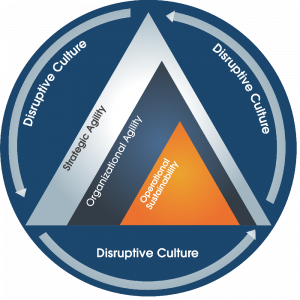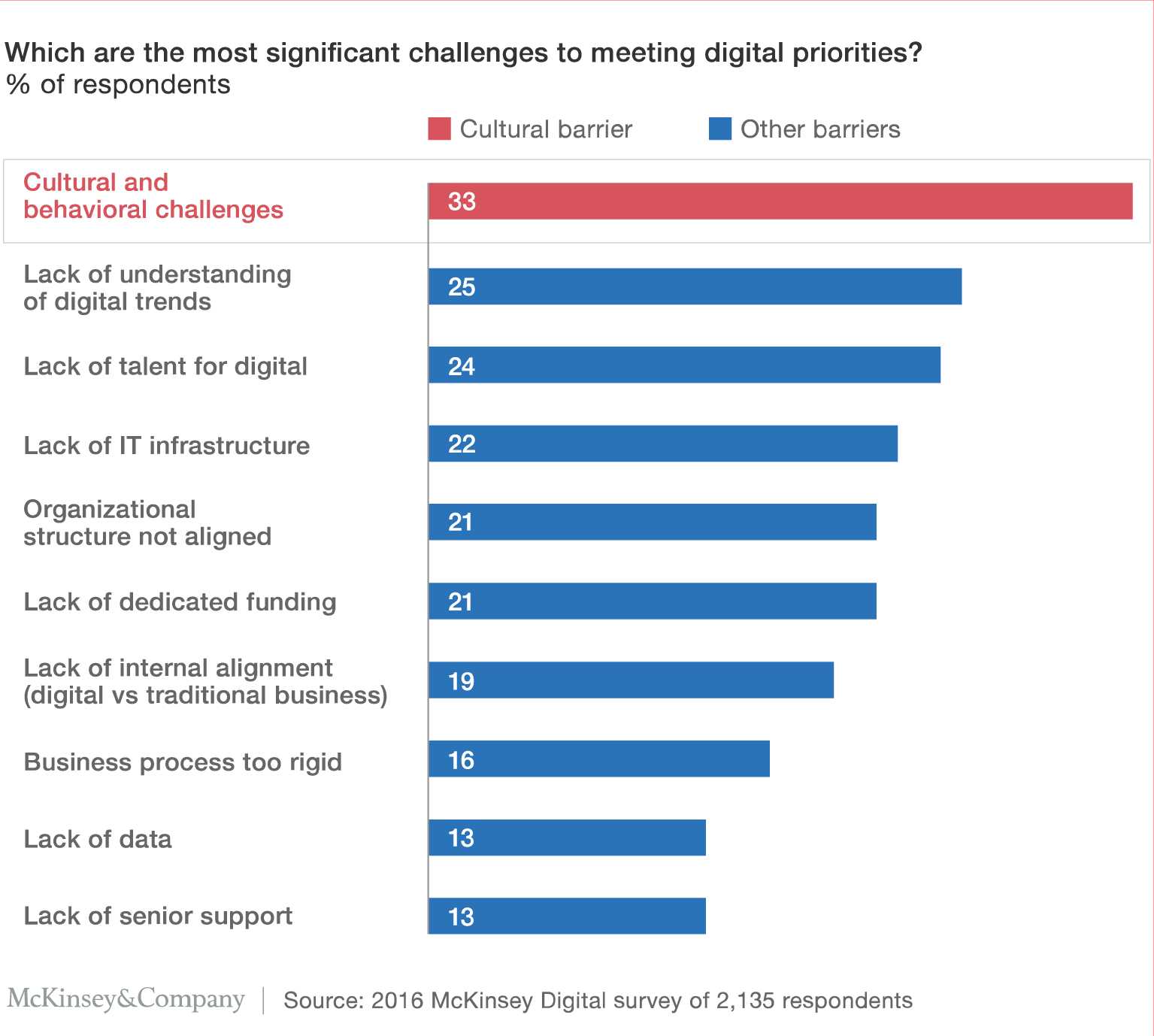Digital Transformation Framework:
Readiness Component
Introduction
In the ever-evolving digital landscape, readiness is not just a preparation but a necessity for survival and growth. The Digital Transformation Framework, developed by the Institute for Digital Transformation, serves as a critical tool to assess and measure an organization’s Readiness to execute and sustain a digital transformation effort.
Why Readiness is Critical
The importance of readiness in digital transformation cannot be overstated. According to a 2018 McKinsey study, “Cultural and Behavioral Challenges” were responsible for a third of the failures. When combined with the other issues identified (e.g. Lack of Understand, Organizational Structure, Rigid Processes, etc.), they all point to the simple fact that the organization was not prepared for any type of change.
The Startling Failure Rate
The failure rate in digital transformation is alarmingly high, with most industry analysts placing it between 70% and 85%. Here’s a snapshot of the grim statistics:
- 70% don’t reach their stated goals. – McKinsey
- 84% Of Companies Fail At Digital Transformation – Forbes
- The brutal fact is that about 70% of all change initiatives fail – Harvard Business Review
- 87% of businesses believe digital will disrupt their industry. However, just 44% are prepared for the disruption. – Deloitte
- 73% of employees affected by change experience medium to high levels of stress – Gartner
Why the High Failure Rate?
If the cause was identified in 2018 and confirmed by dozens of analysts, why is the failure rate still so high? The sad truth is that firms have developed and are delivering a standard approach to Transformation (one size fits all). Organizations may have some similarities, but in reality, they are all different and unique in certain ways. Using the same transformation approach every time guarantees that you will have failures.
How Do You Know if Your Organization is Ready?
The Digital Transformation Framework is a comprehensive approach that measures an organization’s ability to successfully transform. The Readiness Competent measures across four key Dimensions:
Operational Sustainability
- Definition: Organization can maintain its core operations without disruption.
- Importance: Ensures that the organization is always ready to adapt to new challenges and opportunities. Being ready is a continual journey, not an end-state.
- Why It Matters: A sustainable operation is the backbone of any transformation, providing stability and resilience.
Organizational Agility
- Definition: The ability to adapt quickly to market changes internally and externally.
- Importance: Builds a culture that encourages innovation and adaptability.
- Why It Matters: Organization that can rapidly adapt provides a competitive edge and prevents them from falling behind those that can swiftly adjust to new market realities.
Strategic Agility
- Definition: The ability to identify and capture opportunities more quickly than rivals.
- Importance: Aligns the organization’s strategies with its ability to execute, ensuring that it can respond to the ever-changing digital landscape.
- Why It Matters: Strategic agility enables organizations to stay ahead of the competition by recognizing and seizing opportunities faster.
Disruptive Culture
- Definition: A culture that fosters innovation and challenges the status quo.
- Importance: Encourages a culture that embraces disruption, allowing the organization to innovate and adapt in a rapidly changing digital environment.
- Why It Matters: A culture that fosters innovation/adaptability, rapidly responds to market changes, and identifies new opportunities; directly translates to growth, sustainability, and an enhanced return on investment.
Customize Your Transformation Journey
Creating your unique transformation journey involves identifying specific areas of focus that are vital to an organization’s success in the digital landscape. By conducting a thorough assessment of these areas, a strategic roadmap can be generated, tailored to the unique needs and objectives of the organization. This roadmap serves as an actionable guide, emphasizing targeted aspects that are crucial for success. It aligns with the organization’s vision and goals, providing a clear and focused path to navigate the complexities of digital transformation. By placing a strong emphasis on these identified areas, the roadmap becomes more than a plan; it becomes a strategic compass, directing the organization’s journey towards sustainable growth, innovation, and a competitive edge in a rapidly evolving environment.
Call to Action for Leaders
Leaders, the time to act is now. Understanding the state of your organization’s ability to change is not just a task; it’s a strategic imperative. The Digital Transformation Framework offers a clear path to assess and enhance your organization’s readiness for digital transformation.
Embrace the Framework, delve into these four dimensions, and lead your organization towards a successful digital future. The question is not whether you can afford to invest in readiness; it’s whether you can afford not to.
Conclusion
The Digital Transformation Framework is more than a methodology; it’s a roadmap to navigate the complex terrain of digital transformation. With the critical role of Readiness and the alarming failure rates, organizations must leverage this Framework to prepare for the future.
More Information
Interested in learning more about how and why the Framework was developed? Curious about the research conducted and the academic sources used as input to the development?
OR
Ready to Get Started?
The Institute in collaboration with TSO has developed a tool that will objectively assess the state of your organization and provide recommendations to improve your ability to successfully execute a transformation. Interested?


